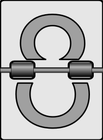Yu’ebao Slowdown, Aug 8 Listing For Alibaba

Newly released data are showing an inevitable slowdown at Yu’ebao, Alibaba’s inaugural financial product that has shaken up China’s stodgy banking industry since its launch a year ago. The data released by Alibaba’s Tianhong Asset Management, which officially runs Yu’ebao, also shows the product’s return rate has dropped considerably from earlier levels, which will further undermine its attractiveness. Separately, media are reporting that Alibaba has tentatively chosen the date of August 8 for its highly anticipated New York listing, which had been previously rumored due to its significance as a lucky day on the Chinese calendar.
Yu’ebao has revolutionized China’s banking industry since its launch last summer by offering consumers a strong alternative to traditional savings accounts. The product allowed users of Alibaba’s Alipay electronic payments service to put their idle cash into an Yu’ebao account, initially delivering yields of 6 percent or more — well above the level for tightly regulated bank savings accounts.
Yu’ebao could deliver those returns by investing in higher-yield money markets that carried relatively low risk. It also wasn’t subject to strict reserve requirements and other regulation imposed on banks, meaning it could invest more of its money into financial markets than traditional lenders. As a result, Yu’ebao quickly grew to become China’s largest fund and also prompted a slew of other Internet companies like Baidu (Nasdaq: BIDU) and Tencent (HKEx: 700) to offer similar products.
As its first anniversary arrives, Tianhong is reporting that Yu’ebao’s total assets stood at 574 billion yuan ($93 billion) at the end of June, making it the largest fund in China and the word’s fourth largest money market fund. (Chinese article) The fund continued to grow in the 3 months to June, though at a rate of just 6 percent from the previous quarter. That’s far less than the many-fold increases seen in the fund’s first few quarters.
None of this is too surprising, since it would have been nearly impossible for Yu’ebao to maintain its breakneck growth for too long after reaching such a huge size. But the slowdown could also be tied to Yu’ebao’s rapidly shrinking return rate, which stood at just 4.235 percent at the end of June. That’s a far cry from returns at the 6 percent level when the product first launched, and not that different from interest rates being offered by traditional banks.
The near-term future doesn’t look too much better, with analysts predicting the rate could dip below the 4 percent level soon. The central bank had previously indicated it would more tightly regulate Yu’ebao and its new peers, and the rapidly declining return rates could be partly the result of the new regulation. All of that, combined with the intensifying competition, means we can probably expect to see Yu’ebao’s size peak later this year, and possibly start to shrink by year end.
Luckily for Alibaba, the Yu’ebao story isn’t a big part of its IPO, which is more tied to its core e-commerce businesses. The company has already filed an IPO prospectus and amended it once to say it will list on the New York Stock Exchange. It said it will use the ticker symbol BABA, which is the last part of its name but also sounds like 88 in Chinese. That’s a lucky number due to connotations with wealth associated with 8.
Now media are saying that Alibaba has chosen the 8th day of the 8th month, or August 8, to make its official trading debut. (Chinese article) The choice of that date has been rumored for the last few weeks, and is quite logical as it’s a lucky number in Chinese that fits well with Alibaba’s listing timetable. At the end of the day it will take more than lucky dates to help Alibaba’s listing succeed. But that said, I do have to at least compliment the company with making a savvy choice that will keep its name in the headlines as the big day approaches.
Bottom line: Yu’ebao’s size will peak soon and start to shrink by year end due to growing competition, while Alibaba’s August 8 listing date is a savvy choice to keep its name in the headlines.
Related posts:
